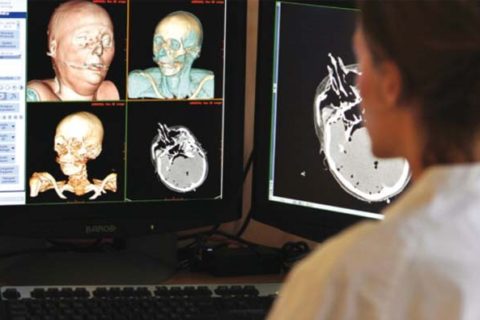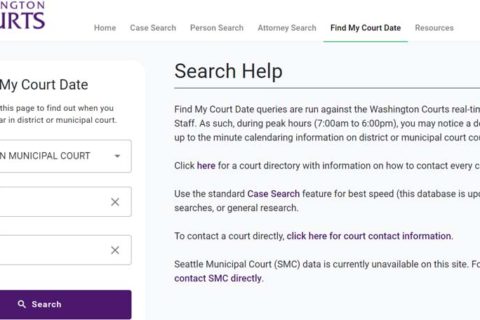In Law, you will find a term called ‘Indictment’ which refers to an individual who is accused or charged of a serious crime. An indictment is issued as a written document that informs a person of the charges leveled against them.
Furthermore, this is a formal written accusation of a crime that is confirmed by a grand jury and submitted to a court for the trial of a defendant. The indictment actually allows a government prosecution of a suspected criminal actor for the offenses charged in the indictment.

How Does the Court Determine a Person to be Indicted?
In very simple terms, an individual will be indicted based upon the evidence which is available. However, the indictments will be quite commonly used, however they’re not required every single time. At the federal level, an indictment is only required for a felony which will be heard in a federal court.
In fact, no state is legally required to indict every individual who is believed that he/she has violated the law. But in most states including Texas, New York, Massachusetts and also Ohio currently have a law which states that an indictment will be required to charge an individual who’s accused of a federal crime.
During the trial process, an indictment may happen at a range of stages and it does not need to take place at the beginning. In some jurisdictions, an indictment is performed before someone is put under arrest, while others may arrest the individual. Then, an indictment won’t come as a surprise, since the individual in question will be aware that the police are interested in them.
Furthermore, the indictments will be necessary for crimes which are considered serious in nature. The fifth amendment of the United States Constitution reveals that an indictment is a must for a capital or infamous crime. Well, a crime can be assessed as being infamous when it constitutes a felony or treason.
In this case, a felony is a crime such as murder, rape, arson, kidnapping and burglary. Treason means betraying a person’s country by trying to kill or overthrow those in power. Both felony and treason will be punishable by death.
The fifth amendment also adds that for such crimes, a grand jury should be present. Commonly, an indictment will be issued when a prosecutor considers that the evidence presented to them is enough to convict a defendant. But an indictment does not mean that the accused will go to jail, since they can be acquitted of the crime after the trial.
Who Makes the Decision to Indict?
In most cases, a grand jury that is called by the prosecutor will have the task to decide whether or not there is enough evidence present to charge someone with a serious offense. In this case, the grand jury will be chosen in one of ways, depending on the jurisdiction that the case takes place in.
The selection of the grand jury will occur through invitation in some jurisdictions. In other words, you may need to know someone in order to sit on a grand jury. In other jurisdictions, the selection may be totally random, just like a classic jury. Well, all prospective jurors must undergo an interview to ensure that they have the capacity to serve and that they are not biased in any way.
Does an Indictment Mean You Are Guilty?
If you get an indictment, it does not automatically mean that you’re guilty of the crime that you’re being accused of. In this case, an indictment means that the jury has found probable cause to charge you with a crime, it does not mean you’ve already been found guilty.
Before you’re convicted of any offense, probable cause will depend on the standard of evidence and the jury should also be convinced by the state in which you committed a crime. It should also be without a reasonable doubt.
Basically, in order to declare you guilty, there must be a probability of above 99% that you have committed the crime in question. Of course, for probable cause and the issuing of an indictment, there should be a reasonable cause to be charged with a crime, based on the evidence.
How is the Indictment Process?
There are several stages of indictment, including:
- The suspect/ defendant is arrested.
- A grand jury determines whether or not there is enough evidence that points to the accused.
- The grand jury voted based on the evidence presented.
- Documents on the indictment are prepared and submitted to the court by the attorney office.
- The defendant will be notified of the indictment.
- The criminal case continues within 70 days of filling the indictment.
- Defendants and their counsel will be provided with all documents and information necessary.
- The trial will begin and the defendant will be arraigned in court. At the trail, the prosecutor will attempt to prove the defendant guilty. Twelve members of the grand jury should agree for the defendant to be declared guilty.
- The defendant will then have the chance to question, present evidence, challenge witnesses and challenge evidence through their counsel.
- Based on the evidence, a defendant needs to choose to plead guilty early in the case.
- The process ends by giving proof of the innocence or guilt of the defendant.
Get to Know Indictment at the State Level
Those who do are free to follow their own rules since some states are not prompted to use a grand jury to get felony indictments. States grand juries serve in a similar manner to federal grand juries, but it tends to vary by the number of jurors and type of majority required.
Here are the examples of state grand jury laws:
- California: With a population exceeding 4 million, the number of required jurors is 23 in countries, 11 in a county with 20,000 or less and 19 in all other counties.
- Texas: With a quorum of nine needed to proceed, the number of required jurors is 12 for all countries, nine jurors should vote for a true bill in order to get an indictment.
- Illinois: with a quorum of 12 needed to proceed, the number of required jurors is 16 for all countries, nine jurors should vote for a true bill in order to get an indictment.

A bookworm and researcher especially related to law and citizenship education. I spend time every day in front of the internet and the campus library.





